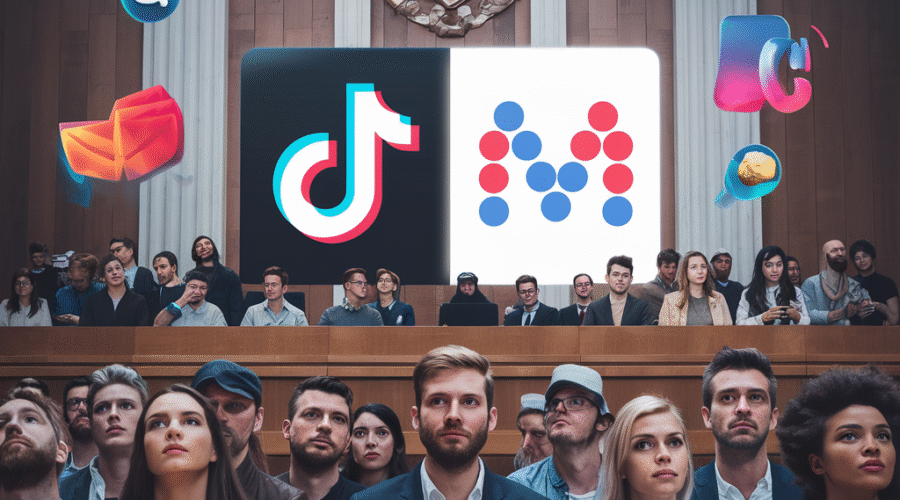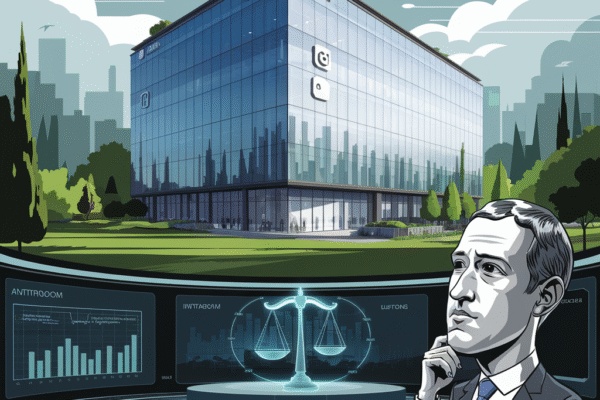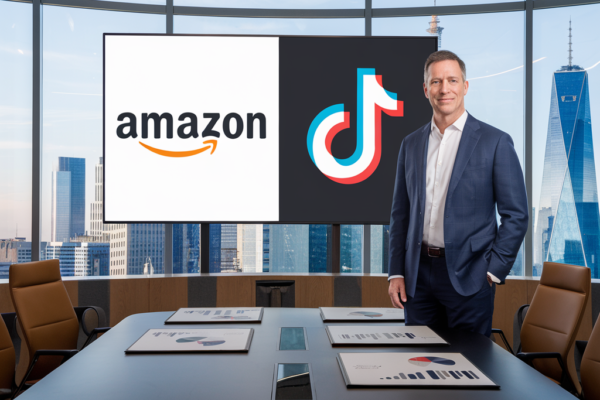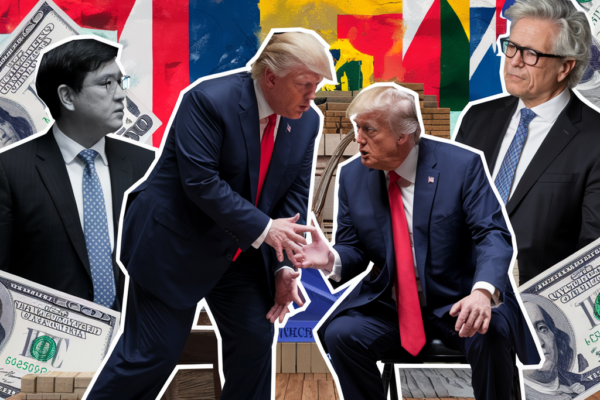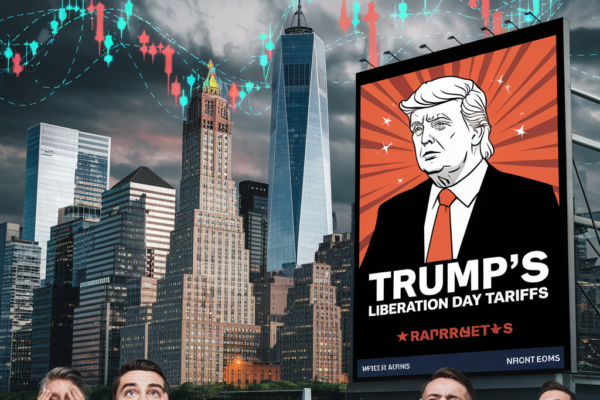As Meta CEO Mark Zuckerberg concluded his third day of testimony in the Federal Trade Commission’s landmark antitrust trial on April 16, 2025, a surprising antagonist emerged from the shadows of the courtroom drama: ByteDance’s TikTok. The social media titan’s admission that the Chinese-owned platform represents “probably the highest competitive threat for Instagram and Facebook over the last few years”[1][3][4] has exposed fundamental shifts in the digital landscape while complicating regulators’ attempts to dismantle Meta’s empire. This high-stakes legal confrontation, which could force Meta to divest Instagram and WhatsApp, reveals how competitive realities have outpaced regulatory frameworks in the age of algorithmic entertainment.
The Anatomy of a Competitive Reckoning
From Camera App to Cultural Juggernaut
Meta’s $1 billion acquisition of Instagram in 2012 now appears prescient through the lens of Zuckerberg’s recent testimony. The Facebook founder described Instagram’s superior camera technology as the primary acquisition rationale, characterizing it as “better at that, so I thought it was better to buy them”[2][5]. This build-vs-buy calculus, repeated with WhatsApp’s $22 billion purchase in 2014, formed the foundation of Meta’s mobile-first strategy. Yet internal documents reveal growing unease about antitrust exposure, with Zuckerberg musing in 2018 about preemptively spinning off Instagram amid regulatory pressure[2][4][8].
The TikTok Disruption Matrix
ByteDance’s 2018 U.S. launch of TikTok triggered what Zuckerberg termed a “highly urgent” competitive crisis[4][6]. User engagement metrics showed Meta’s core platforms losing ground to TikTok’s algorithmic feed, particularly among Gen Z. By 2020, Meta responded with Instagram Reels – a near-identical short video format that now accounts for 20% of Facebook content and 10% of Instagram posts[2][3]. Despite these efforts, Zuckerberg conceded that “TikTok is still bigger than either Facebook or Instagram”[3][5], with users spending more combined time on YouTube than Meta’s flagship apps[8].
Regulatory Crosshairs in a Shifting Market
The FTC’s Narrow Market Definition
At the heart of the antitrust case lies a fundamental dispute over market boundaries. The FTC contends Meta monopolizes “personal social networking” services focused on friend/family connections[2][5][6], deliberately excluding TikTok and YouTube from this category. Meta’s defense team counters that this artificial market definition ignores reality, noting that 30% of Facebook content and 40% of Instagram posts now come from non-social sources[2][4]. Judge James Boasberg’s probing question – “Why does it matter if your friends are there?”[4] – suggests skepticism about the FTC’s rigid market parameters.
The Buy-or-Bury Paradox
Internal communications presented at trial reveal Meta’s strategic calculus. A 2013 email showed Zuckerberg blocking ads for rival messaging apps WeChat and Line, which he described as “trying to build social networks to replace us”[4][8]. Yet under oath, the CEO reframed these moves as standard competitive practice, invoking Intel founder Andy Grove’s mantra that “only the paranoid survive”[4][8]. This tension between aggressive competition and anticompetitive practice forms the crux of the FTC’s “buy-or-bury” allegations[3][5].
The Video-First Future of Social Media
Algorithmic Arms Race
TikTok’s rise has fundamentally altered content consumption patterns. Where Meta’s platforms originally prioritized social graphs, TikTok’s discovery engine leverages machine learning to surface content without requiring social connections[4][6]. This shift prompted Meta to overhaul its algorithms, with Zuckerberg testifying that “these apps now serve primarily as discovery engines”[4]. The result: friend-sourced content now comprises just 20% of Facebook posts and 10% on Instagram[2][4], undermining the FTC’s core market definition.
Advertising at Scale
The trial revealed Meta’s experimental “all-ad feed” concept[2][4], reflecting how advertising models adapt to changing consumption. With TikTok’s For You Page generating $20 billion in 2024 ad revenue[3][7], Meta faces pressure to balance user experience with shareholder demands. Zuckerberg defended current ad loads as responsive to user preferences, claiming the system shows “more ad content to people who like seeing ad content”[2][4]. This data-driven approach contrasts with TikTok’s younger-skewing audience that reportedly tolerates higher ad density.
Geopolitical Dimensions of Platform Competition
The China Factor
TikTok’s Chinese ownership adds complexity to Meta’s competitive narrative. While not explicitly raised in court, Zuckerberg’s repeated emphasis on TikTok’s threat[1][3][4] aligns with broader U.S. concerns about Chinese tech dominance. Meta’s lobbying efforts, including Zuckerberg’s frequent White House visits and $23 million D.C. residence purchase[5][6], suggest strategic positioning in this geopolitical tech cold war. The company’s $450 million settlement offer to the FTC[3], rejected as insufficient, may reflect calculations about regulatory priorities in an election year.
Content Moderation Crossroads
Sandberg’s testimony highlighted how competition impacts content policies. “Every time you go on your phone, you have a choice of what you spend your time on,” she stated[5][6], framing content moderation as both ethical imperative and competitive differentiator. With TikTok facing its own Congressional scrutiny over data practices and influence operations, the trial outcomes could reshape how platforms balance free expression, safety, and growth.
Strategic Implications for Industry Leaders
M&A in the Regulatory Spotlight
The FTC’s case establishes a new paradigm for tech acquisitions. Meta’s argument that Instagram and WhatsApp became successful through post-acquisition investment[5][6][8] clashes with regulators’ focus on initial market positions. This tension creates uncertainty for strategic buyers: Microsoft’s pending acquisition of Discord and Google’s YouTube Shorts expansion may face heightened scrutiny based on trial outcomes.
The Innovation Imperative
Zuckerberg’s admission that Meta was “slow to recognize the TikTok threat”[2][4] underscores the innovation paradox facing incumbents. While Reels adoption shows Meta can still ship competitive features, the 2-year lag behind TikTok allowed ByteDance to establish market leadership. For legacy platforms, the trial highlights the need for continuous reinvention – a challenge compounded by antitrust oversight limiting acquisition strategies.
Conclusion: Navigating the New Competitive Landscape
The Meta-FTC confrontation reveals a social media ecosystem in profound flux. As algorithmic discovery surpasses social graphs in driving engagement, regulators must grapple with outdated market definitions while platforms balance innovation against antitrust risk. For Meta, the path forward likely involves doubling down on AI-driven content recommendations while navigating political headwinds from Washington to Beijing. Industry leaders should prepare for intensified competition in short-form video, increased M&A scrutiny, and geopolitical factors reshaping digital markets. Those who adapt to this TikTok-shaped future while maintaining regulatory compliance will define the next era of social connectivity.
Sources
https://www.irishtimes.com/business/2025/04/16/metas-zuckerberg-says-tiktok-is-a-major-competitive-threat/, https://nation.africa/kenya/news/world/-mark-zuckerberg-slow-to-recognise-the-threat-posed-by-tiktok-5006034, https://www.pymnts.com/cpi-posts/on-the-stand-for-third-day-zuckerberg-calls-tiktok-highest-competition-threat-to-meta/, https://www.spokesman.com/stories/2025/apr/16/meta-saw-tiktok-as-highly-urgent-threat-zuckerberg/, https://www.channelnewsasia.com/world/mark-zuckerberg-denis-meta-bought-instagram-whatsapp-conquer-trial-5071006, https://www.lemonde.fr/en/united-states/article/2025/04/17/zuckerberg-denies-meta-bought-rivals-to-conquer-them_6740317_133.html, https://www.teamblind.com/post/Zuckerberg-underscores-TikTok-competition-as-Meta-fights-monopoly-allegations-q5XPKEwy, https://economictimes.com/tech/technology/meta-ceo-mark-zuckerberg-wraps-up-testimony-in-antitrust-case/articleshow/120365806.cms

